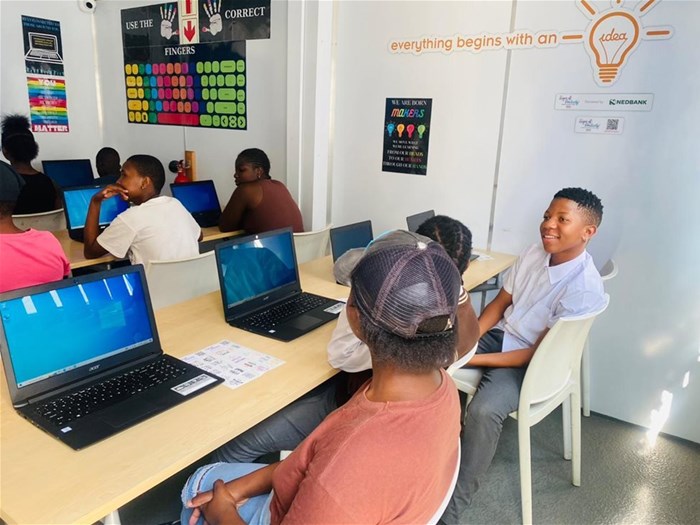Muziwenkosi Zwane, CEO of Alexandra Township-based non-profit Rays of Hope, has called on government to fast-track the decision to exclude schools from load shedding.

Image: Supplied
Load shedding has caused widespread disruption across South Africa, but its effects on the country’s most vulnerable have been particularly detrimental, especially learners and educators facing these disruptions in educational environments.
“Learners in underserved communities such as Alex have been hard-hit by rolling blackouts in the country. In addition to issues like crime and violence, poverty and inequality that all plague the youth of Alex, their opportunities to learn are also hindered. Rays of Hope agrees with the decision taken by the Pretoria High Court last year to exempt schools from load shedding, and my hope is that the decision comes into effect sooner rather than later.”
Load shedding a barrier to learning
The barriers to learning created by load shedding only exacerbate the challenges faced by the education sector. Learners in foundation phases of learning are at a particular disadvantage, as instructional time lost in the classroom means they inevitably lag behind. This is especially concerning given recent statistics revealing that 81% of grade four learners in South Africa are unable to read for comprehension.
“If you look at how load shedding is already affecting an education system in crisis, one could say that it’s jeopardising learning outcomes because it hinders learners’ knowledge, it hinders their skills development both at home and at school,” said education expert, Kathija Yassim in a recent interview.
“It also disrupts their learning processes because they have lost instruction time. And because there is this anxiety over the kind of learning losses that learners are experiencing, you are finding that this also causes additional stress to all concerned, including teachers, parents, and of course the learners themselves.”
Load shedding disruptions also place strain on the school calendar and require teachers to modify their approach to structuring and delivering lessons. As a result, assessments are also impacted, which may hold learners back from reaching schooling milestones on time.
Digital doozy
Addressing South Africa’s digital divide remains a top priority for the country, and ensuring learners have access to connectivity and the appropriate digital literacy resources, such as high-speed internet and smart devices, is a big part of this. President Ramaphosa echoed these sentiments in his recent Sona speech, saying that every child deserves to live in a country where “the same opportunities are available to every child, whether they are born in Sandton, in Mdantsane, in Sekhukhune, in Mitchell’s Plain or in Phoenix”.
However, learners are unable to enjoy the benefits of an internet connection or learning through the use of digital devices in the classroom or at home as a result of load shedding. During load shedding, teachers are unable to make use of audio-visual aids, interactive whiteboards and digital displays, or any interactive technology that assists learners with grasping educational concepts.
And while access to connectivity is growing through initiatives such as fibre provider Vuma’s ‘Fibre to Schools’ and ‘Reach’ projects that allow households in underserved communities to connect to fast fibre internet, load shedding often impacts internet connections. This makes important aspects of education, such as research, monitoring progress, and online assessments, virtually impossible.
“Education is just as essential as health and telecommunications services to the running of our country and should be prioritised as such. Keeping the lights on at schools is imperative if we have any hope of bringing lasting change and dignity to the youth living in communities in need,” says Zwane.


































